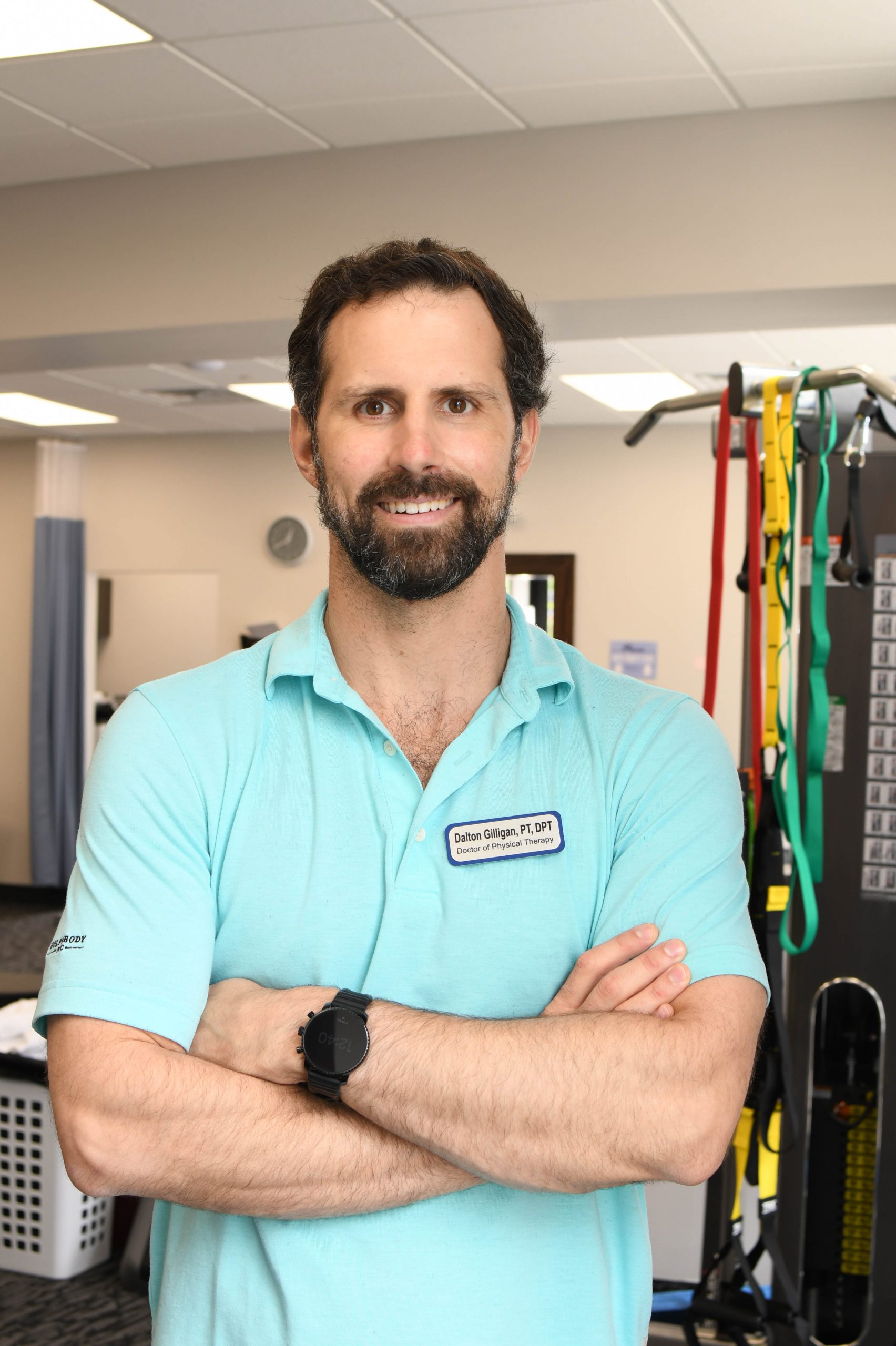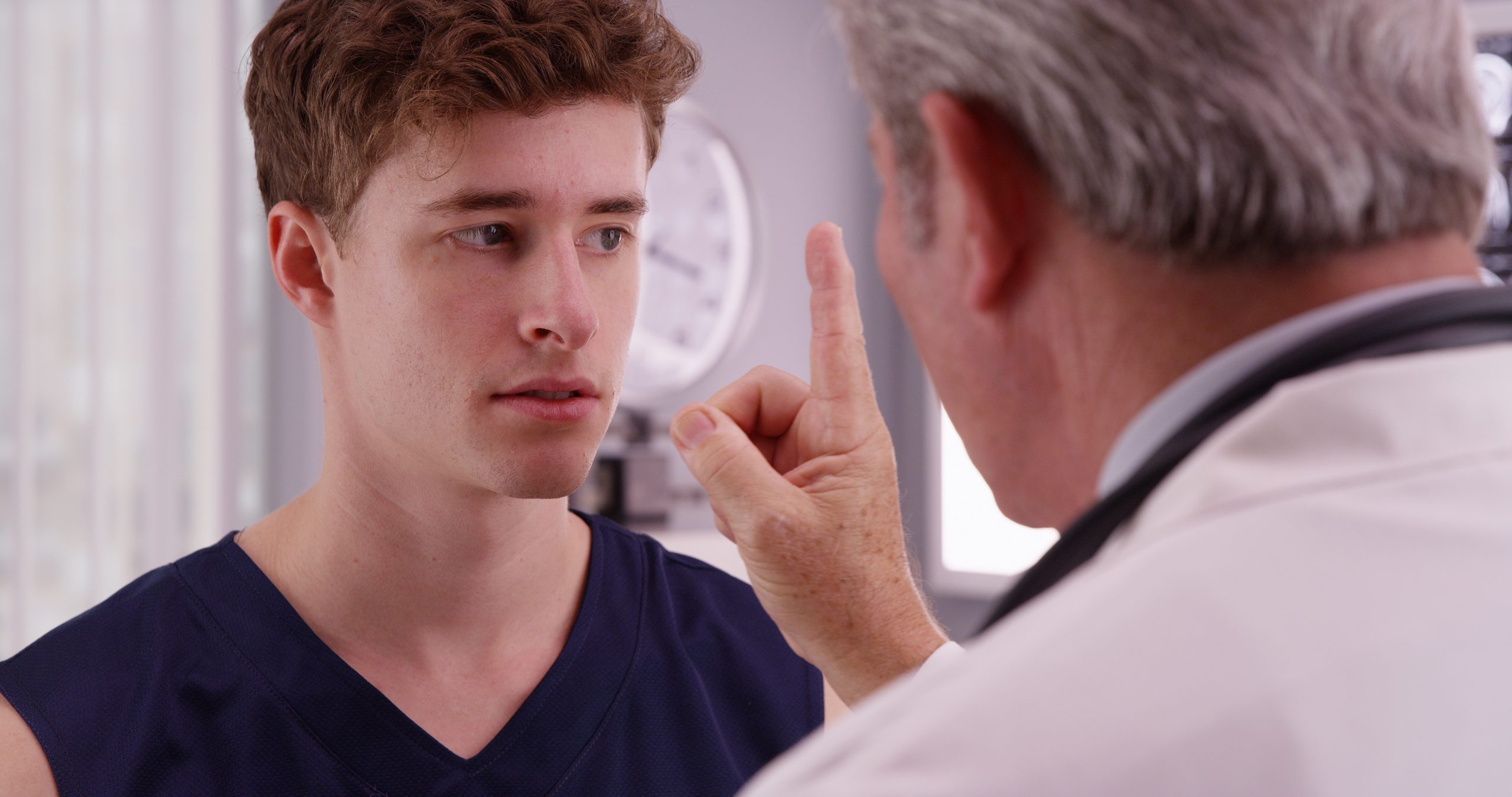March is Brain Injury Awareness Month, although people suffer from the invisible consequences of brain injuries every single day. This month, we are shedding light on common brain injuries and how to treat them, featuring insights from SportsMed physical therapists who specialize in neurological rehabilitation, vestibular rehabilitation, and concussion therapy.
This article is written by SportsMed Physical Therapy Parispanny’s Clinical Director, Dr. Dalton Gilligan, PT, DPT.

Listed below are common symptoms which occur following a concussion. A skilled physical therapist and healthcare team will help determine which issues are affecting you the most and target exercises to address your specific challenges.
Anxiety/mood:
Following a brain injury, emotional dysregulation often occurs. One may feel more irritable, experience increased worrying, or have trouble finding joy in activities that previously brought happiness. Your healthcare provider can help you identify this. Note that physical exercise has positive impacts on mood-related symptoms.
Cognitive fatigue:
A person with a concussion might feel good at the start of the day but mentally will fatigue even after light cognitive work. It is important to work with a healthcare team to determine the right amount of work or school, and strategies to deal with the symptom of cognitive fatigue.
Oculomotor tracking (vision control):
Weakness and discoordination of the muscles controlling the eyes following a concussion can cause oculomotor tracking issues. This can make it difficult for your eyes to come together when looking at something close, track moving objects, or move your eyes quickly from point to point. Eye strain can occur, causing headaches and issues with work or school. A physical therapist skilled in concussion rehabilitation will help you identify and provide exercises to improve the strength of your eye muscles.

Vestibular:
Sometimes, the inner ear can be affected. This can cause rotational dizziness when you get out of bed, or dizziness with head movement. A physical therapist can provide you with exercises that can help improve this symptom. These exercises are challenging so it’s important to work with your therapist to find the correct amount to perform and slowly increase the dose.
Migraine:
Migraine issues can occur or worsen following a concussion. Light and noise sensitivity are common. Physical exercise can help improve these symptoms.
Cervicogenic:
Following impact, the neck will always be affected. In addition to pain, muscle dysfunction of the neck can actually mimic some of the symptoms listed above, from headaches to dizziness. A physical therapist can perform hands-on interventions to decrease the pain and improve flexibility and prescribe exercises to strengthen the neck and surrounding structures to improve muscle performance.
Autonomic dysfunction:
Following a concussion, you may have an abnormal heart rate response to exercise. Reaching a certain threshold of activity may increase your symptoms. Aerobic exercise however plays an extremely important role in concussion recovery.
It’s essential to seek proper medical care and evaluation post-concussion, no matter how seemingly minor. Physical therapy that focuses on neurological and vestibular rehabilitation can help. SportsMed Physical Therapy has a team of doctors of physical therapy across NJ & CT ready to help you get back to feeling your best and doing what you love, safely.

